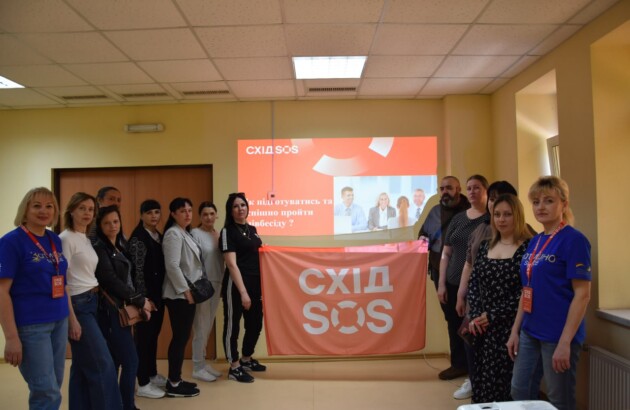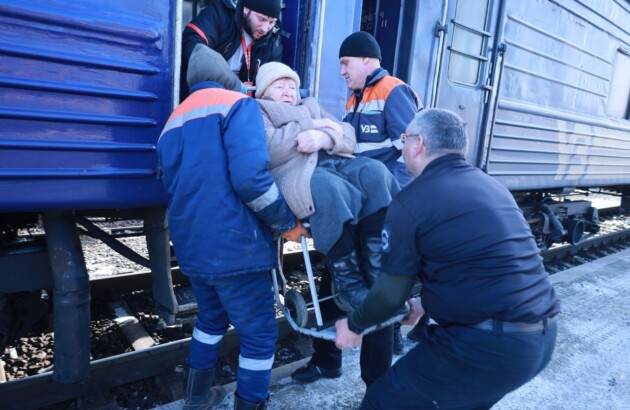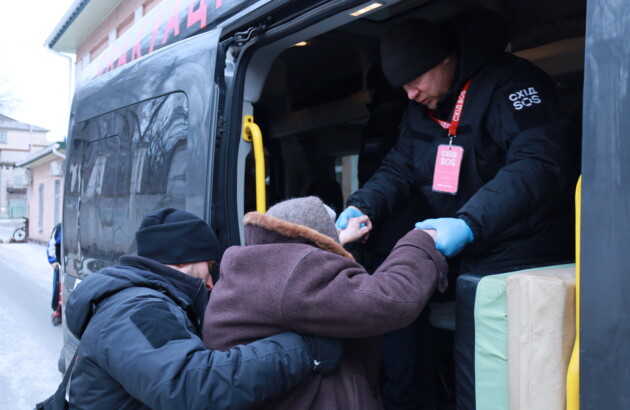Human rights activists call for pressure on Russia to get humanitarian access to flooded left-bank Kherson region.
On June 6, 2023, the Russian Federation committed, perhaps, the biggest environmental and man-made disaster in the last 30 years by blowing up the Kakhovka HPP dam. Currently, it is known that 68% of the left bank and 32% of the right bank of Kherson region have been flooded, and the water level continues to rise. In addition, the first victims of the disaster were recorded: as of June 9, at least nine people were killed in flooded Oleshky. But the real number of the killed on the right bank will become known only after the water level stabilization, and on the left bank – after de-occupation. According to preliminary data, more than 80 settlements on both banks of the Dnipro River will face difficulties in the water supply to Kherson, Mykolaiv, Dnipropetrovsk, and Zaporizhzhia regions, as well as northern Crimea. At present, the supply of fresh water necessary for the daily life of most of the settlements in the south of Ukraine has already been hampered.
On the right bank of Kherson region, the Ukrainian authorities began evacuation and elimination of the consequences of the disaster immediately after the Russian military blew up the Kakhovka HPP dam. Evacuation is ongoing despite regular Russian shelling of areas from which civilians are being evacuated.
But on the left bank, which is occupied by the Russian Federation, the occupation authorities do not evacuate the residents and also prevent the evacuation which is carried out by people independently or with the help of volunteer initiatives. The Russian military has set up roadblocks at the exits from flooded settlements and obstructs evacuation by firing at the boats and ships of those trying to escape. Permission to leave some flooded settlements was granted only to persons who have Russian passports or who paid bribes to the military. Citizens from vulnerable categories found themselves in difficult circumstances, in particular families with newborns and minor children who did not receive a Russian birth certificate, which is why the Russian military does not allow the parents of these children to take their children out of the region.
The situation in the left-bank settlements is extremely critical. Adults, children, and animals save themselves climbing to the roofs of houses, having no drinking water, food, and medicines. Another important aspect is that chemicals, pathogens from cemeteries, sewage drains, and landfills can end up in wells and open water bodies which will lead to an epidemic of infectious diseases. The flooding also created an additional threat to the civilian population of both banks of Kherson region due to the large number of mines, ammunition and other explosive objects drifting under the pressure of a large mass of water.
The Russian Federation once again shows its cruelty and indifference to the civilian population in the territories it occupied. If the evacuation of civilians does not begin immediately, the death toll will reach hundreds, if not thousands.
We call on the international community to urgently take all possible measures to obtain humanitarian access to the flooded zone on the left bank of Kherson region in any way that will save people’s lives.
- Human Rights Centre ZMINA
- NGO CrimeaSOS
- NGO “Donbas SOS”
- Charitable Foundation “The Right to Protection”
- Charitable Foundation “East SOS”
- Charity Foundation “Stabilization Support Services”
- Association of Relatives of Political Prisoners of the Kremlin
- Kharkiv Institute for Social Research
- Educational Human Rights House Chernihiv
- Media Initiative for Human Rights
- Human Rights Center “Action”
- Advocacy Advisory Panel
- PLATFORM FOR RELEASE OF POLITICAL PRISONERS
- NGO “Ukraine without Torture”
- Association UMDPL
- Center for Civil Liberties
- Crimean Human Rights Group
- Ukrainian Maritime Bar Association
- “Almenda” Civic Education Center
- Regional Center for Human Rights
- Human Rights House “Crimea”
- Kharkiv Anti-Corruption Center
- NGO “Helping to leave”
- NGO “Fundamental Research Support Fund”
- Democratic Initiatives Incubator


